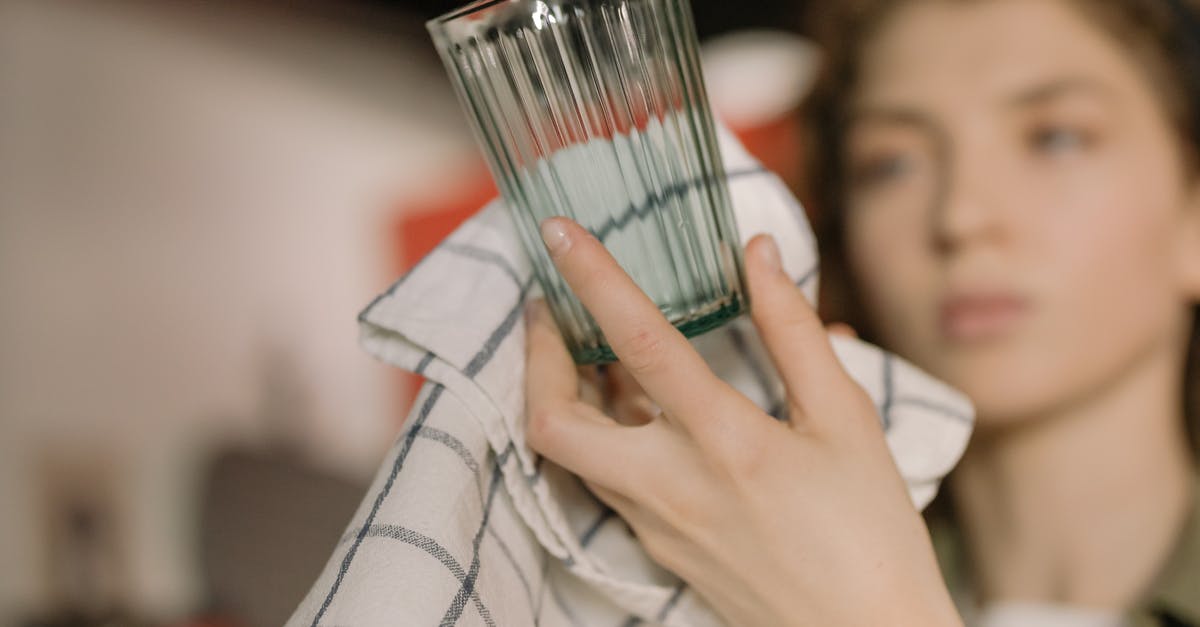What are the benefits and drawbacks of washing dishes in hot water?

When hand-washing dishes, it seems commonplace to wash dishes in hot water.
This LifeHacker article about washing your hands in hot water versus cold water points out that:
It's certainly true that heat kills bacteria, but if you were going to use hot water to kill them it would have to be way too hot for you to tolerate
But sometimes when hand washing dishes the water can be uncomfortably hot (i.e. you wouldn't put bare skin under it for extended periods of time and consider that gloves are sometimes worn) -- hotter than what would be discussed in the article.
Also consider this Housekeeping About.com article in which it asserts claims about using hot water:
Cleaning Power
- Hot water actually helps to lift away and clean dirty dishes
Killing Bacteria and Microorganisms
- Hot water is needed to effectively kill bacteria on dishes
Cutting grease
Water temperatures under about 90 degrees will leave a nasty greasy film on your dishes
Grease cutting ability is severely hampered by cool water
Drying Time
- Hot water dries much more quickly on dishes than warm or cool water
And also:
Dishes will dry spot and streak free with hotter water
However, these all seem to be claims that can be easily assumed. Since most people use warm-to-hot water they would assume it is the reason the dishes are spot free or rinse off easy. Reading the article leaves me asking "why?", how?" and "but wait I just saw a source saying the water isn't hot enough to kill bacteria and microorganisms?".
There are no sources for the information either, and the fact it is About.com leaves me skeptical.
What, if any, benefits are there of hand washing dishes in hot water? What about drawbacks?
Best Answer
Before we proceed, we should note that not all dirty dishes are created equal. There are a few "groups" with different chemical and physical properties.
- Sugar
Probably the easiest of all as it will happily dissolve in water. A bit quicker in warm or hot water than in cold water (iced tea, anyone?), but not adverse to being washed off. We can probably ignore it for our further discussion. - Starch, uncooked
Pure starch will easily dissolve in cold water, but tends to form lumps in hot water as anyone trying to thicken a soup or sauce can attest. This means all starchy dishes, from your bread bowl to the spoon in your bag of flour needs to be rinsed cold (first) or you will end up with a glue-like substance clinging to your dishes, your rag, your brush, whatever. You need to create a suspension, that is tiny particles floating in your water instead of a sticky goo. - Proteins, unheated
Unheated, that means uncoagulated proteins, like the yolks in your breakfast egg or that cup with fat-free milk, even the cutting board of your meat are comparatively easy to dissolve in cool-to-lukewarm water - everything below their specific temperature at which they denaturize. This does not mean that they are clean after that because there are: - Fats
This is the one group that really, really needs some solvent, aka dishwashing liquid for simple chemical reasons: Fats are hydrophobic, they do not mix with water. Your soap binds with the fat molecules forming larger molecules, that are then soluble in water. Hotter water speeds up this process, similar to sugar dissolving faster in hot water. Plus food fats that are solid at room temperature turn liquid when warmed which helps the soap to "get" the fat molecules. No need to boil your hands, though.
Now unless you serve a very restricted breakfast, your dishes will likely contain something of each group above, so you need an adjusted approach:
Those dishes that have starchy and protein-rich components may benefit from a cool rinse first. Then your dishes can go in the sink with quite warm water - hotter speeds up the "loosening" of fats and other crusts, but you need not "boil" your hands, gloved or not.
Yet we still have to consider our nasty hitchhikers:
- Bacteria and their ilk
Let's get one misconception out of the way first: Washing dishes, whether by hand or in a dishwasher, does not remove all bacteria. You can scrub and sanitize to your heart's content, your kitchen will never be truly sterile. And it doesn't have to. The human body deals well with some "intruders" on average, they can even be beneficial.
What we want to do is to reduce the total amount of bacteria present and, if possible, eliminate those that are highly pathogenic. (Don't lick that raw chicken...!) Unfortunately, the suggestion of washing your dishes with really hot water to kill them is impractical at best - Salmonella dies at about 70C / 155 F1, similar rules apply for Listeria.
Bacteria doesn't come alone, it is on and in the food. So cleaning the dishes well and removing all residue will in fact rinse the bacteria right off and leave the very few that still might cling to a plate without food, causing many of them to die. Much more critical is the great bacterial breeding ground near your sink: Sponges and rags may contain far more pathogens than a random plate - your food is typically not contaminated to the hilt from the start. So make sure you rinse your dishes well after washing, consider air-drying or at least use a fresh towel.
1 To be precise, it's a function over time and temperature, but that doesn't make much of a difference here.
Pictures about "What are the benefits and drawbacks of washing dishes in hot water?"



Quick Answer about "What are the benefits and drawbacks of washing dishes in hot water?"
- Cleaning Power. Hot water actually helps to lift away and clean dirty dishes.
- Killing Bacteria and Microorganisms. Hot water is needed to effectively kill bacteria on dishes.
- Cutting grease. ...
- Drying Time.
Is it bad to wash dishes with hot water?
Hot water is needed to effectively kill bacteria on dishes. It may seem like you can squeeze a little more use out of a dishpan full of cool water, but compromising your family's exposure to bacteria is not worth the extra trouble of running a new pan of hot water.Is hot water better for washing dishes?
Let us break it down for you why: Hot water is generally more capable at removing grease from dishes, which explains why washing the dishes in cold water or room temperature water may sometimes result in a nasty and persistent greasy film on your dishes even after the dishes are dried.Is it better to rinse dishes with hot or cold water?
Hot, soapy water followed by a soak in a dish sanitizer wiped out nearly all microscopic organisms. But cooler water, followed by a rinse and sanitizer, killed off germs just as well, according to the research.What are the benefits of washing with hot water?
Benefits of Using Warm Water for Your Laundry- 1) Get Rid of Germs. Your workout clothes, socks, bedsheets, etc. attract a lot of germs and bacteria. ...
- 2) Get Rid of Stains. Hot water helps lift stains easily. ...
- 3) Treat Stubborn Stains. To treat stubborn stains on your garments, simply mix 2 tsp.
Dishwasher vs Hand Washing | Which Uses Less Water \u0026 Energy?
More answers regarding what are the benefits and drawbacks of washing dishes in hot water?
Answer 2
There are three things that help to clean things, according to chemists/biochemists, be they clothes, dishes or my personal area of expertise, beer pipes:
- Detergent - this is your washing up liquid for dishes; washing powder for clothes; Sodium Hypochlorite/Sodium Hydroxide solution for beer pipes.
- Mechanical Energy - scrubbing brush/scourer + "elbow grease"; rotating drum with paddles; pulling the solution through the pipe every 15 minutes.
- Thermal Energy - Hot water; Hot water; Hot water.
Now, before you start criticizing, I know that washing powders are now advertising that they work just as well at 40C or 30C. They don't, but they're good enough that they cope. If the temperature were higher, you'd use more electricity, and you might damage your clothes.
Also, beer pipes should be cleaned with cold water, as hot water may cause untold damage to delicate cooling equipment along the way from cellar to tap. A brewery cellar technician did confide in me that warm water works better than cold, but that they never tell 99% of their customers that in case they use boiling water instead. I have used fairly warm water (50C) for cleaning pipes, after turning all coolers off, and it worked so much better than cold water. Remembering to turn the coolers back on was the hard bit!
So the same goes for dishes. If you leave your dirty dishes to soak for 2 minutes in water that is just bearable for your hands (normally about 60C for most people) before scouring/wiping, you'll find that they come clean much more easily than if that water were cold. Think of a chef deglazing a pan with some boiling liquid and a wooden spoon. That gets some really burnt-on bits off the surface in no time. They would take ages with cold liquid.
Answer 3
We clean dishes to remove food waste, so they are visibly clean for their next use, and to stop bacteria growing on them between uses.
Cleaning dishes requires two main functions to remove food waste from the dishes, and hot water helps both of them:
- Solvent: typically a mix of water and soap to dissolve food waste from dishes and suspend them in the solvent
- Mechanical: scrubbing or wiping to release food waste from dishes. In the case of a dish washer machine, the forceful water jets are the mechanical force.
From Particle Theory; heated particles vibrate more, their structure is therefore weakened, and they become more fluid
A solvent of just cold water will work, but requires larger amounts of mechanical action to remove enough food waste. It will also require larger amounts of rinse water.
A solvent of just hand hot water will work better, with a bit less mechanical energy than with cold water, but still using more rinse water. The heat energy makes everything softer, hence easier to remove.
Hot water is especially important for solid fats (typically saturated fats e.g. meat, butter etc.) as these become soft or liquid when heated, and are then significantly easier to remove. Some solid fats are nearly impossible to remove without hot water or soaps as they are waxy, and resist scrubbing. Leftover solid fats are ideal harbours for bacteria, and are one of the key items tested in dish washing machines and by restaurant hygiene inspectors.
An ideal solvent solution is water and dish soap. The soap helps remove food waste and keeps the food waste suspended in the water, so it cannot stick back onto the dishes. Hot water makes everything softer, and reduces the amount of scrubbing required, the amount of soap required, and the total amount water required.
What is important is that the heat in the water exponentially improves the power of the scrubbing, lowers the volume of rinse water, and in most cases increases the power of the soap. This exponential cleaning increase is more than the energy required to heat the water. Dish washer machines use this trick, they internally heat the water to around 80°C so they need less mechanical force (water jets) and soap to clean the dishes. The water jets are usually not that powerful, and do not work very well at lower temperatures.
Answer 4
In terms of bacteria warm water does not make dishes cleaner
The soap kills the bacteria (most of it, anyway), and it can do this just as well in 1C water as in 100C water.
Hot water can kill bacteria (alone) but the temperatures needed are 70–150C+, typically for a sustained amount of time (10–15 minutes+), although this depends on the specific bacteria.
Considering hot water from a tap is usually somewhere between 45 and 60C (and most usually around 50C), we can see that there's no real benefit from warm water for killing bacteria. Cold water doesn't inhibit soap's effectiveness, and there's no way we can wash dishes in water that's hot enough on its own to kill bacteria
So why use warm water? Well for one thing it's far more comfortable, so we're likely to be more thorough in our scrubbing — which removes more debris and means the soap can work on the dish. The biggest problem for washing dishes is actually residue left on the dishes.
And secondly for things like sugars, dried on foods, warm water will often soften them faster allowing for easier removal.
So warm/hot water indirectly helps us to clean dishes, but only by making it easier to remove debris, and more comfortable on our hands.
The hot water itself does absolutely nothing at the temperatures we use.
Sources: Stack Exchange - This article follows the attribution requirements of Stack Exchange and is licensed under CC BY-SA 3.0.
Images: cottonbro, cottonbro, Engin Akyurt, Jer Chung
